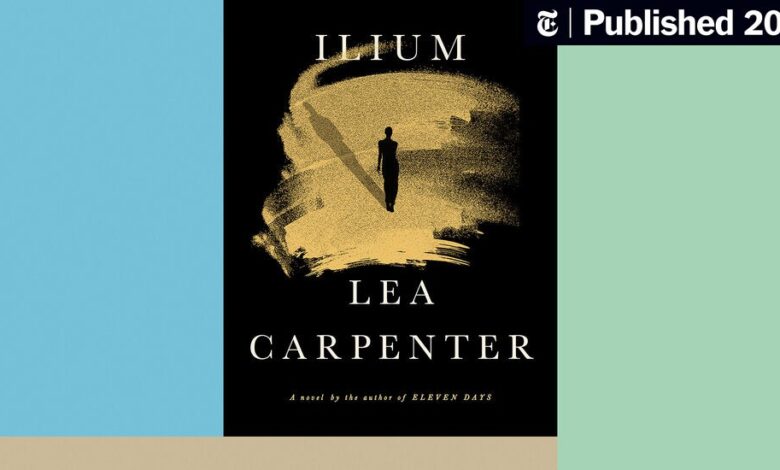Book Review: ‘Ilium,’ by Lea Carpenter

She will, it turns out, be the perfect asset to infiltrate Edouard’s French compound, but it’s not simply because of her nature. She has a physical attribute that I would be unsporting to share in a review, and when she’s spotted by a 50-something C.I.A. agent named Marcus in Trafalgar Square, the recruitment begins. “I was the perfect one for the job,” she admits. “Not only did I look the part, I was … what every case officer dreams to find in an asset: naïve, no strong ties, poor. I didn’t even know myself.” Her infiltration is the first step in Operation Ilium.
Years before meeting the narrator, Marcus acquired the London home where her mother once worked, and the recruitment, either by destiny or design, becomes a whirlwind romance. She presumes her new boyfriend, and quickly her new husband, is simply a wealthy businessman. Nope. Soon after their tiny wedding in Mallorca, while honeymooning in Croatia, he drops two bombshells on her. He needs her to pose as an art critic who can visit Edouard’s French estate and provide reconnaissance on the property. Also: Marcus is dying.
While Carpenter knows how to dish out the dread that a spy story needs, what makes “Ilium” intriguing are the characters. There are, of course, the agents behind Operation Ilium, such as Raja, recruited by MI6 while studying in Beirut, and Jack and Jill, an Irishman and a Ukrainian who — imagine Matthew Rhys and Keri Russell in the TV series “The Americans” — sometimes pose as husband and wife and sometimes as brother and sister, and usually are the most competent people in the room.
But there is also Edouard’s family on the estate, including his mysterious wife, Dasha; his stepdaughter, Nikki; and his delightful young son, Felix. When Marcus dies, part of the narrator’s cover is to heal her loss with this family into which she has insinuated herself. Even though they are aligned with her enemy, a man her late husband and Raja clearly loathed, she finds herself taking profound comfort from them — including Edouard.
This is the sort of moral ambiguity that seems to fascinate Carpenter, the way living a double life and every day making your cover, that critical and deeply embedded lie, feels real to everyone around you. It’s also what makes “Ilium” such an unexpectedly moving novel.
Source link




